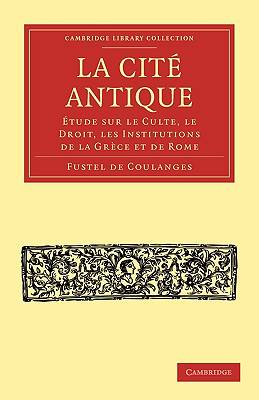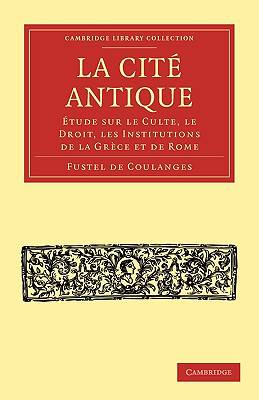
- Afhalen na 1 uur in een winkel met voorraad
- Gratis thuislevering in België vanaf € 30
- Ruim aanbod met 7 miljoen producten
- Afhalen na 1 uur in een winkel met voorraad
- Gratis thuislevering in België vanaf € 30
- Ruim aanbod met 7 miljoen producten
Zoeken
La Cité Antique
Étude Sur Le Culte, Le Droit, Les Institutions de la Grèce Et de Rome
Fustel De Coulanges
€ 99,95
+ 199 punten
Uitvoering
Omschrijving
La Cité Antique is the best-known work by the nineteenth-century French historian Fustel de Coulanges (1830-1889), who pioneered an objective approach to the study of history, and the use of primary rather than secondary sources. This reissue is of the 1866 edition of the book, which was originally published in 1864 while the author was professor of history at Strasbourg. It explores the influence of religion and kinship on the development of the laws and political institutions of ancient Greek and Roman societies. Coulanges describes many aspects of Greek and Roman family law including marriage, divorce, adoption, property and inheritance. After giving an account of the social organisation of cities, their administration, and the rights and duties of citizens, he outlines the processes of institutional change and the evolving power relationships between the social classes. Finally he discusses the effects of Christianity in the political sphere.
Specificaties
Betrokkenen
- Auteur(s):
- Uitgeverij:
Inhoud
- Aantal bladzijden:
- 532
- Taal:
- Frans
- Reeks:
Eigenschappen
- Productcode (EAN):
- 9781108011716
- Verschijningsdatum:
- 22/04/2010
- Uitvoering:
- Paperback
- Formaat:
- Trade paperback (VS)
- Afmetingen:
- 140 mm x 216 mm
- Gewicht:
- 666 g

Alleen bij Standaard Boekhandel
+ 199 punten op je klantenkaart van Standaard Boekhandel
Beoordelingen
We publiceren alleen reviews die voldoen aan de voorwaarden voor reviews. Bekijk onze voorwaarden voor reviews.











